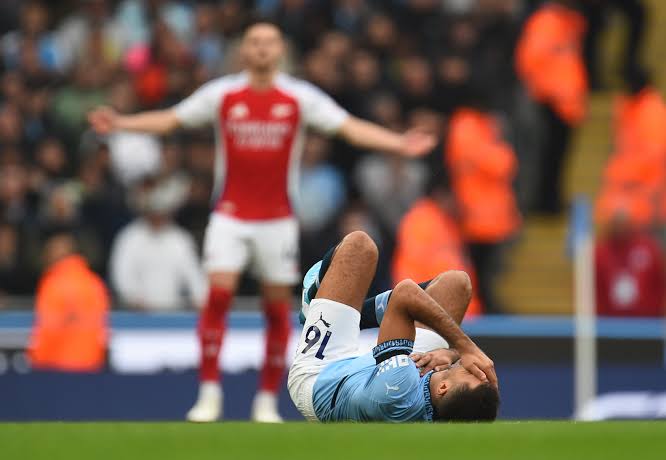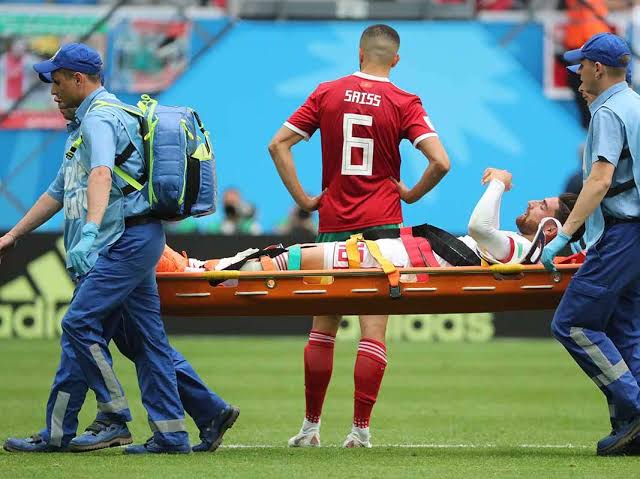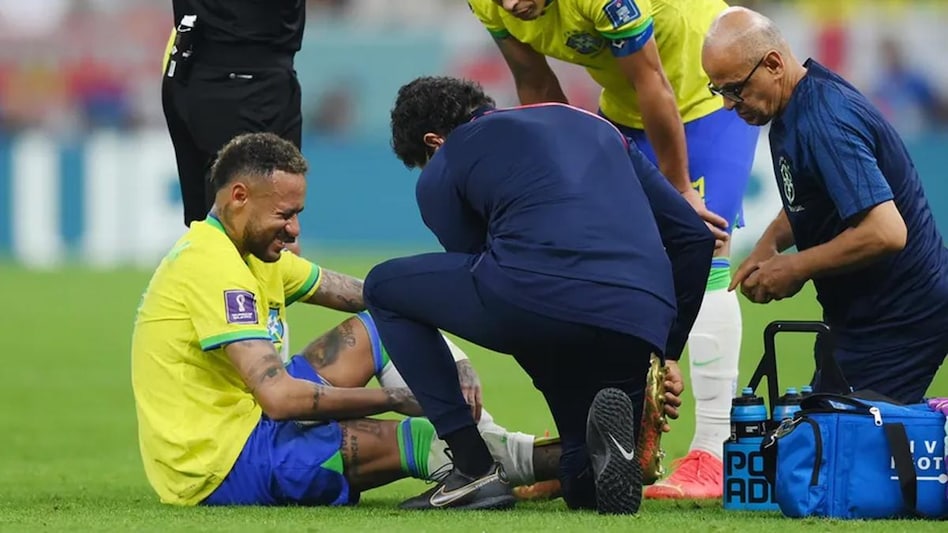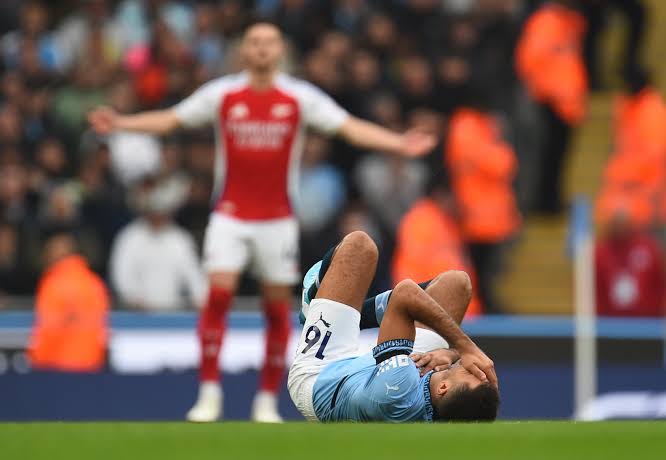More games can-do : UEFA president Aleksandr Ceferin has in a recent interview respond to the controversial topic of the increasing number of games resulting in more injuries to players – making it known that only more games can-do in a world of increasing financial needs.
The increasing rate of long-term injuries in recent years has led to players complaining about the creation of more competitions, which have seen the season schedules continue to fatten.
More Games Can-Do
The new UEFA Champions League format is one of the typical examples of ways the season calendar has been extended. The maximum number of games to be played by any sides that compete in the final was 13, but it could now be up to 17.
Another notable extension is the creation of more competitions, like the UEFA and CONCACAF Nations League for European and North American countries respectively.
The FIFA Club World Cup, which has now been changed from a minor tournament of champions from each continent to a major tournament of 32 teams has been the headline of all complains, because it has caused the extension of season calendar of the clubs involved.
The next edition of the FIFA World Cup, which will be held in North America in 2026 will also witness the increased number of participants, from the regular 32 to 46, meaning there will be a round of 32 after the group games.
The effect becomes more brutal because majority of player that play for national teams are those who play for elite teams, and take part in the extended club competitions.
Football players have continously alarm about the lack of concerns for their safety and health. Toni Kroos, Rodri, Kevin De Bruyne, Heung-Min Son, Manuel Akanji, Dayot Upamecano, Alisson Becker and others have spoken against the packed calendar.
Players Submit Complaint about FIFA to European Committee Earlier in November, the European Commission received a complaint filed by Players’ union FIFPRO and the top European leagues about FIFA’s expansion of the international match calendar in a bid to accommodate the FIFA Club World Cup tournament.
FIFPRO argues that the new football calendar infringes European Union competition law and “risks player safety and well-being and threatens the economic and social sustainability of important national competitions which have been enjoyed for generations by fans in Europe and across the world”.
Also included in the complaints is that FIFA’s actions are “abusive” and “unjustified” and accuses the world football governing body’s dominant position in the game as “indisputable”.
Who Is to Blame for Increased games?
More games means more money and capitalists do not pass the opportunity to optimize their potential.

Everyone wants to make more money. From FIFA to other Federations, to the FAs, the clubs and down to the players — but to satisfy this needs, more money has to be earned and creation of more games is one of the primary sources of more money.
The problem started when wealthy businessmen started to invest in clubs, increasing their financial capability, using that to transform average clubs into world class by attracting the best players with money.
The failure of the Financial Fair Play to transparently deal with rising matters concerning breaches of their rules has increasingly made clubs feel no restrictions in splashing the cash, increasing the pressure on other clubs.
The Federations are now taking advantage of the situation to make more money for themselves, while also engaging the football clubs, who would surely not pass the chance to earn more money.
FIFA wants to make the Club World Cup a tournament to rival the UEFA Champions League, sacrificing the prestige of the competition for more money, as well as the health of the players.
Not only will those be the case but will entirely disrupt the season calendar, and players whose clubs take part in the competition will have little or no break in the summer.
Clubs should also take part of the blame as they accepted FIFA’s invitation for the Club World Cup when have not qualified by winning the Champions League in their respective continents, they are the ones that allowed FIFA to successfully upset the season calendar.
But presented a chance to earn more money, can the clubs be blamed for accepting the invites?
Footballers, those at top clubs earn way more than their counterparts from the lower teams, while it isn’t that they play way too many games, on average than their counterparts, and their clubs will only attract sponsors by taking part in major tournaments.
According to former footballer, Graham Cummins, who in an interview with EchoLive, talked about his feelings that no sympathy should be afforded for players at the best clubs complaining about too many games. He said;
“When I hear about players, who are playing at the very top, complaining about too many games, that irritates me.
If players want to play less then go play for a club that isn’t competing in Europe.”

Of course the clubs have to earn more in other to meet their wages, improve performance and facilities, in order to stay competitive to earn more money.
More Games Can-Do
UEFA president Aleksander Čeferin has also weighed in on the topic, insisting there is no solution to the increased games, and the federations have been kind by creating more competitions.
“If we were to reduce the number of matches, we would end up with the result that the salaries of football players would also fall. Because the clubs would have less income… it’s a vicious cycle.” Ceferin said in an interview.
“The compromise is that no new competitions are introduced. The rhythm of matches for football players is already at the upper limit.”
“The problem is that the new Club World Cup will take five weeks after the end of the season every four years. Meanwhile, we already have the World Cup, the European Championship.”
The Slovenian also confirmed the legal action taken against FIFA by the players’ union and European leagues.
“I saw that the union of professional footballers with the European leagues has already filed a lawsuit against FIFA.” He continued.
“The problem is that European clubs want the competition, as it would increase revenue and make it easier to pay footballers.”
“So, as I said, it’s a vicious cycle. It will be necessary to sit down with the professional footballers’ union and find out what they want.”
“If we reduce the number of matches, wages will have to be reduced as well. There is no other way.” Ceferin concluded.
Way forward for Players – More Games Can-Do
The major victim of the situation, the players need to find a way to protect themselves from burning out as clubs and Federations do not appear willing to go back on the more games can-do approach.
Negotiating game per season in contracts
Players can include the maximum amount of matches they can play on a single campaign in the terms of their contracts, so that there is a prior agreement between the two parties (player and club), should the former decide not to play a match.
Earn as you play

Players get paid weekly, which is almost equivalent to earn as you play. An agreement could be discussed to make it official, so that the players choose when to play and when not. But they should be paid when willing and available, even though not fielded.
The unfortunate repercussion will however be that injured players may not be paid, unless otherwise discussed in the agreement.
Going on a strike
This is one approach that will definitely work. It however will only be the last resort, if all other means have been exhausted. Going on a striker has already been suggested and the players’ union can help achieve this.
The future of the beautiful game can only be secured if the players are protected. As at today, football has become more competitive with technology and tactical advancement, which cause players to get worn out easily.
And with the stakeholders yet nonchalant about safety, maybe the time is almost us, when the players that action of substantial consequence.


